27th December 2018 Vientiane, Laos
A long road ahead for girls’ education
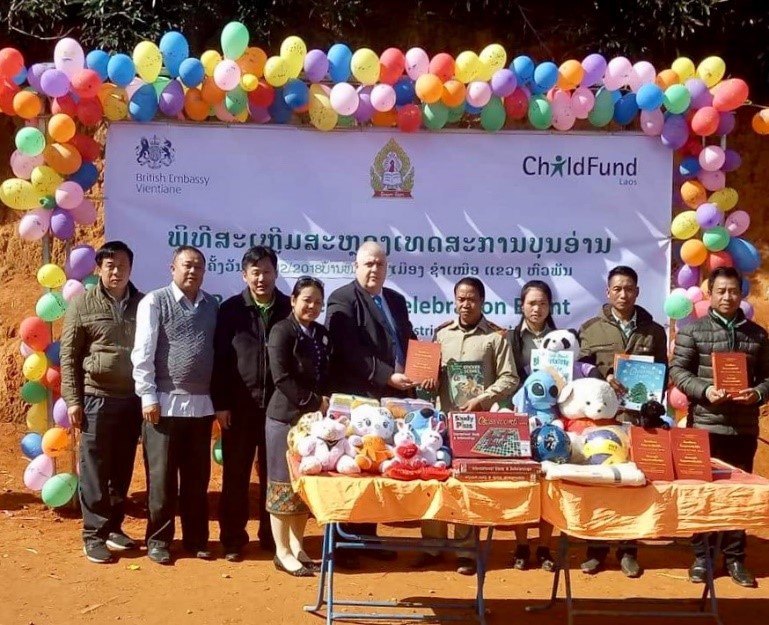
Guest blog by Martin Couch, Acting Deputy Head of Mission at the British Embassy in Laos: A surprise visit to Nongdeng village in Xamnue district, Huaphan province (remote northern Laos)
Thank you Ambassador Hugh Evans for letting me post a blog about my short time here in Laos. As someone who works in the Foreign and Commonwealth Office (FCO) going from embassy to embassy as planned cover for temporary staffing gaps when needed (in the parlance, we are called Worldwide Floaters), I rarely get to see the reality of life in the countryside. I tend to be based in the capital for a few weeks. So having been asked to undertake a visit to a beautiful northern part of Laos I jumped at the chance. And I am glad I did!
It was my great pleasure to be accompanied on the trip by Ms Sneamphay Phrasayamongkhounh, Project and Policy Assistant at the British Embassy in Vientiane. Sneamphay has been leading the embassy’s agenda to promote women’s empowerment and girls’ education. A self-proclaimed female empowerment advocate, Sneamphay is keen to see more Lao women – particularly in remote areas and from ethnic groups – obtain the ability to expand their horizons and become better equipped with skills they need to pursue their dreams. Her advice and guidance was invaluable throughout the programme, which she did a very good job of organising.
From the 16th to 19th December 2018, Sneamphay and I visited and monitored a project aimed at ‘Increasing Participation of Ethnic Girls in Secondary Education (IPEG),’ managed by ChildFund-Laos, supported by the embassy and financed by the FCO Global Britain Fund. The project aims to increase the rate of primary school completion and successful transition to Lower Secondary School by ethnic minority girls from eight schools in remote mountainous areas of Xamnue District, Huaphan province. As in other countries, there tends to be a higher school dropout rate among girls than boys in Laos – a situation which can have adverse consequences for the country’s overall development. Funding for this project reflects the key FCO priority launched this year of supporting girls’ education to ensure vulnerable girls across the world receive 12 years of quality education by 2030.
A trip to the north may sound straightforward to many observers but following some of the recent bad weather and landslides, it turned out to be far more complicated than I expected. Having worked for a few years in West Africa I did not expect the roads to be like those in Europe, but did not expect them to be as badly damaged as they were. From Vientiane we flew to Phonsavanh Airport in Xiengkhoung province, which took thirty minutes, before a seven hour drive to cover the 240 kms to Xamnue.

Even travelling 42km away from the city centre of Xamnue district seemed to be very far away and the road conditions were quite challenging to say the least. As a part of the visit we visited Nongdeng primary school with ChildFund-Laos staff, and paid a courtesy visit with Vice Governor of the province.
It felt good to arrive (eventually!) at NongDeng Primary School, one of eight target primary schools that the embassy is supporting. We felt privileged to be visiting on the day they launched the Reading Festival Ceremony which is one of many activities delivered to improve children’s reading and life skills, particularly for girls.
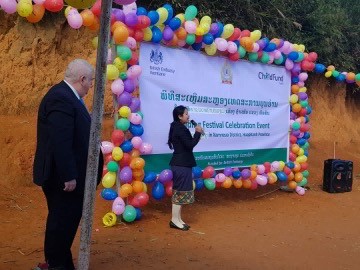
I made an opening speech for local authority and villagers about the importance of education for girls and boys of all ages, with an emphasis on the benefits for the family and communities in the long run as well as for the children themselves. Sneamphay then translated it for me into Lao.
Sneamphay has been very closely involved in the project since it was first proposed to the British Embassy by ChildFund. She coordinated collaboration between both parties and the Provincial Authorities, made sure that the project got the necessary funds, stayed within budget and delivered what it was expected to. Sneamphay’s constant presence at my side was invaluable. Since she has been involved all along with the project, she could give me some useful details about how the project has developed over time. She hopes there will be more opportunities for her to get involved in this type of project in the future.
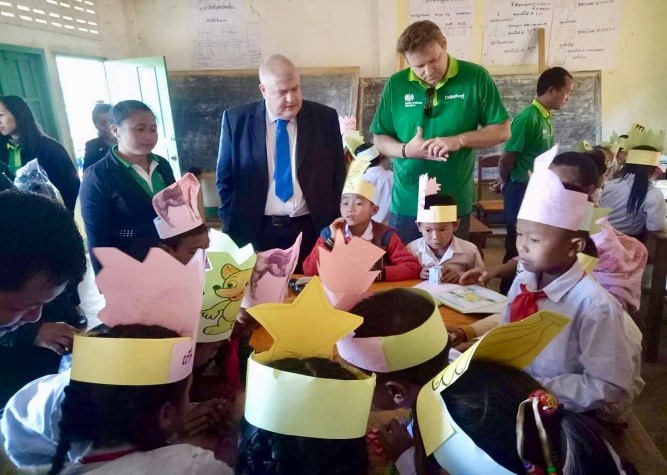
Once we entered the school, we and others were made to feel very welcome by the children who were all lined up like a guard of honour, bedecking us and others with flowers. Two children, one girl and one boy, acted as MC for the day. I thought they exuded more confidence speaking in public than I do, which is a very good sign since a key aim of the project is to build confidence in the children. The children acted out a play they had written, read poetry and the put on a traditional dance. I was impressed by how many of the parents were there to support the children.
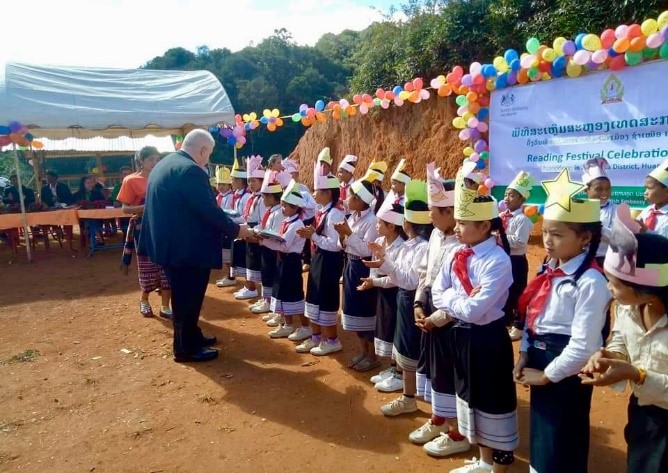
After the festival, we were shown around the school. The children had to go back to class but their enthusiasm for the classes was impressive. I do not recall being quite so keen on schoolwork at their age!
Although the IPEG project aims to promote girls’ education, boys also indirectly benefit from the project. Encouraging a positive perception among boys about the value of girls’ rights is seen as essential to ensuring joint educational progress, particularly where cultural barriers for girls may still exist such as in the more remote and least developed areas where some ethnic minority groups predominate. The project strives to make boys more aware of, and be willing to listen to, girls’ needs so that they can support girls and women in the future.

While there Sneamphay and I also handed over 100 text books, sports equipment, literacy games and ten Lao-Khmer dictionaries to the school, provided by staff at the British Embassy.
Before returning to Xanmue, we paid a courtesy call on H.E Phouzone Thammavixay, Vice Governor of Huaphan Province accompanied by Ms. Keoamphone Souvannaphoum, Country Director of ChildFund Laos and the team.
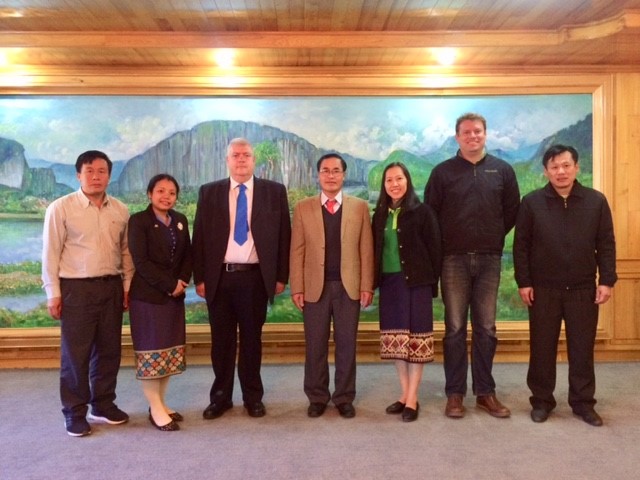
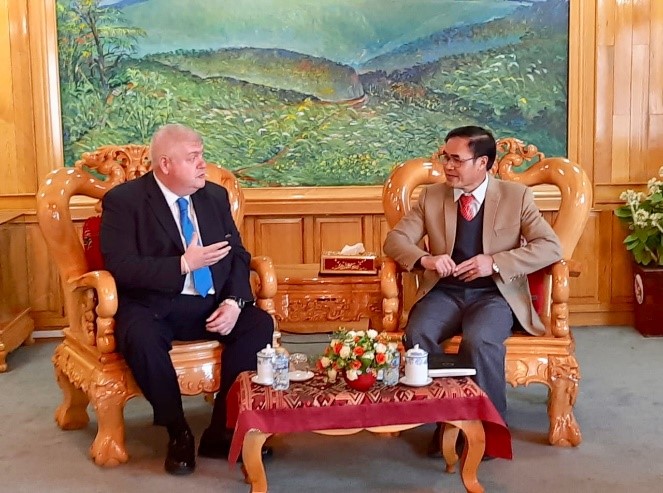
The project has helped improve Lao literacy skills for ethnic minority groups of more than 150 girls where Lao is their second language. The activities aim to help them to improve Lao language and build more confidence in school. Mentoring is provided to teachers so that they are able to utilise the improved methodologies and curriculum with target students who were identified as ‘weak learners’.
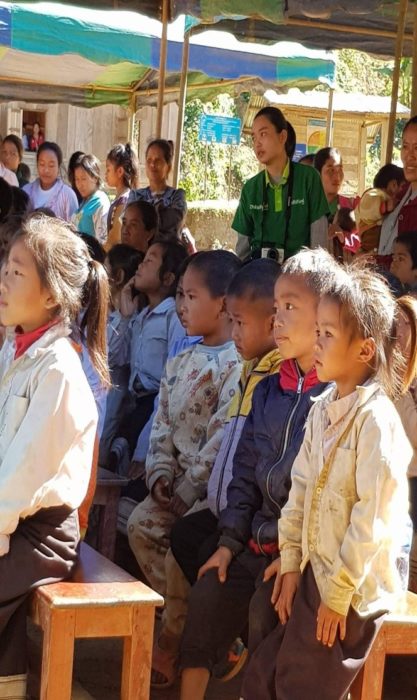
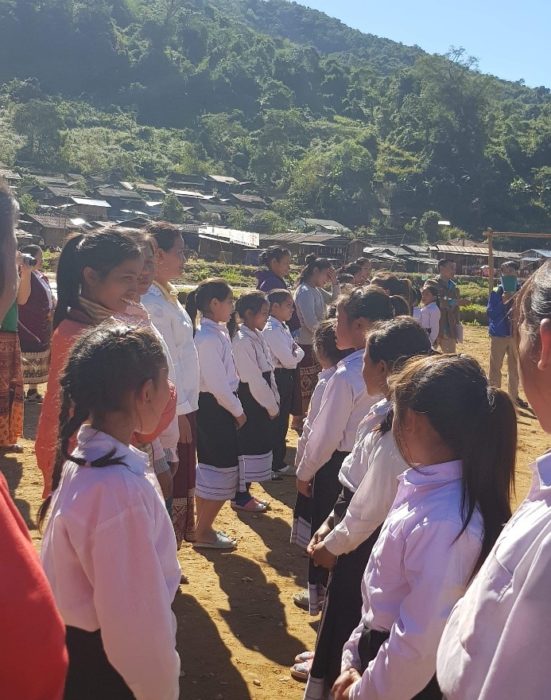
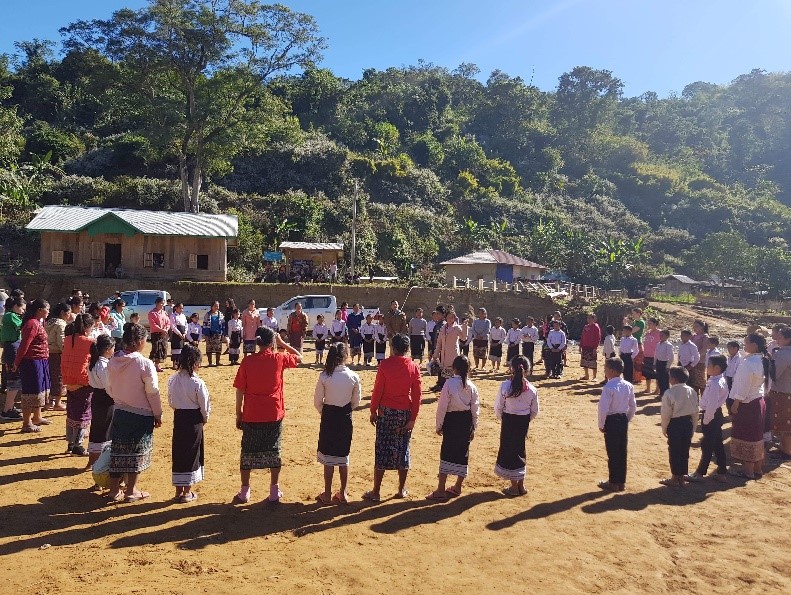
Thank you for sharing Martin! It was a great pleasure traveling with you and Sne from the UK Embassy. Thank you for supporting girls’ education in most needed areas in Laos! We look forward to continuing the partnership with the British Embassy on this work!
Grate job
Thank you for supporting ChildFund Laos in partnership with the British Embassy as we work together to support ethnic girls’ education – particularly to encourage their transition from primary school into lower secondary school. It was a pleasure to have Martin and Sne accompany us in the field. If anyone is interested in learning more, please do not hesitate to get in touch with me, ivanb@childfund.org.la
Hugh Evans, thank you for this post. Its very inspiring.